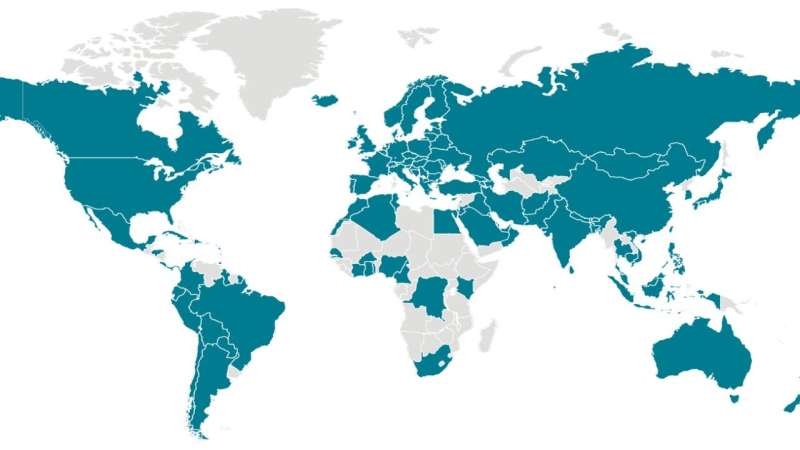Locations with Confirmed COVID-19 Cases. Credit: Global Map by Centers for Disease Control and Prevention (CDC)
While most people are primarily concerned with how the coronavirus will affect health—locally, nationally, and globally—others are considering the economic ramifications. Now that the World Health Organization has officially declared coronavirus a pandemic, preparing a governmental financial response to the virus is crucial.
Yosef Bonaparte, Ph.D., associate professor of finance and director of the J.P. Morgan Commodity Center in CU Denver's Business School, published an article on Mar. 5, 2020 discussing this issue: "Pricing the Economic Risk of Coronavirus: A Delay in Consumption or a Recession?" We asked him to outline the economic risk of coronavirus.
Why Does Illness Affect the Economy?
Bonaparte explained the two factors affected by coronavirus—production and consumption. With the spread of coronavirus, production has decreased due to labor shock. Sick people can't work, in other words. "This is the first recession caused by labor shock; workers can't produce, thereby disrupting the supply chain," Bonaparte said. In contrast, the great depressions of 1929 and 2008 were caused by capital shocks in financial markets (banks running out of liquidity).
Consumption has also decreased. Locally, people are practicing social isolation, which means they are not spending. Travel restrictions are also significantly reducing consumption. The life cycle of the virus (genesis, epidemic, pandemic, stasis) will determine the economic consequences, Bonaparte explains.
Can the U.S. to Counteract Disruptions?
Bonaparte stresses that there are measures the U.S. government can take to mitigate disruptions to financial markets. He splits these into two main categories: what the president/congress can do and what the Federal Reserve can do.
Bonaparte writes that the government can take a number of measures to counteract coronavirus-related drops in production and consumption: institute a payroll tax cut, provide unemployment benefits to people laid off because of coronavirus, spend in infrastructure to fill the gap in missing GDP (gross domestic product), and support travel-related business (airlines, hotels, etc.).
His paper also suggests steps the Federal Reserve can take to minimize financial disruption. Besides securing the liquidity in the market and further lowering the interest rate, the Federal Reserve can "purchase assets in the market and hold those assets until the coronavirus problem settles."
How Coronavirus Will Affect People Financially
Losing your job is the worst-case scenario for most workers. "That's why the government should secure unemployment benefits," Bonaparte said, especially for people working in the travel sector.
People with retirement accounts and/or stocks will also see numbers dip because of the coronavirus. "This money will come back in a year or so," Bonaparte said. "People with a long-term view should not worry too much." The same advice applies to people with stocks. "Ride the volatility," Bonaparte said.
A Glitch in the GDP
It's interesting to note that Bonaparte outlined two scenarios on Mar. 5, 2020. The first was that corporations would miss original Q1/2020 earnings and then experience outstanding Q2 earnings "arising from delayed consumption." Bonaparte's predictions are based on scientific statistical models. Using data from the World Health Organization about the SARS virus outbreak in 2003 (which has DNA that is 80% identical to the coronavirus), Bonaparte estimates that the U.S. outbreak will peak by mid-April (with 67% certainty and standard error of 15—22 days), then decline. If that is the case, it will be a glitch in the GDP and our economy will continue with business as usual.
Bonaparte's original research paper discussed a second scenario, in which coronavirus becomes a pandemic—which is where we are now. If the U.S. government institutes optimal fiscal and monetary policies—investing in infrastructure projects and unemployment benefits, as well as having the Federal Reserve purchase assets—then the country should recover financially. "With these policies, there would be a soft landing for the U.S. economy and the stock market," Bonaparte said.
Provided by University of Colorado Denver






















